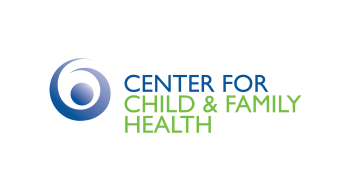When Alexis was a freshman in high school, she left home to live with her father near Ft. Bragg. He had been largely absent from her life, but a domestic violence incident in her mother’s home had necessitated the move.
Moving in with family one hardly knows would be awkward and difficult under the best of circumstances. For Alexis, it was much worse. Her father was extremely strict and kept her at home as much as possible. She felt like she was locked away. Then, after a year passed, he began sexually abusing her. “I had no one to turn to,” she says, “and I felt like I was trapped.”
Before moving to her father’s house, Alexis had been outgoing, spending as much time as possible with her friends. “But now I shut people out,” she says. “I was making good grades, but I kept my distance from everyone. I just went to school and went home.”
Then, during her junior year, she came to Durham for a Memorial Day visit with her mother. She was relieved to be away from her father, but had to put up with constant concern from her mother that she was getting fat. With a closer look at her belly, her mother’s concern turned toward pregnancy, which a hospital visit confirmed. She pressed Alexis with more questions, and, when she finally disclosed that it was her father, her mother flew into a rage and called the police.
Her father would eventually be tried and sentenced to 16 years in prison, but Alexis was left to live with the consequences of the abuse, including raising her new baby. Fortunately, hospital personnel recognized signs of trauma in Alexis and referred her to CCFH where she began seeing Donna Newberne on a weekly basis.
“It was really hard to open up about this situation,” says Alexis in describing her first visits at CCFH, “but Donna made me feel so comfortable.”
Early in treatment, they worked on skills like self-awareness and self-calming. “I was walking around mad and sad all the time,” says Alexis. “I would fly off the handle at every little thing, or I would just go in the corner and cry.” But working with Donna, she cultivated the habit of thinking before acting and recognizing that every situation does not need a reaction.
These skills were preparing her for the hardest part of overcoming her trauma – talking about the details of her abuse. “I had told Donna about the abuse in bits and pieces, but I eventually laid it all on the table for her,” says Alexis. “I told her every detail, and I didn’t cry.”
This storytelling moment in treatment is called a “trauma narrative,” and it is often the culmination of a child’s treatment, providing clear evidence that she is able to recall the traumatic events as simple memories, rather than a present experience that still produces fight or flight responses. For Alexis, telling her story was liberating.
“I felt like I had truly accomplished something,” she says. “My story needed to be told, but I had held it in for so long. And when I finally released it, my spirit was lifted.”
Reaching that milestone also freed Alexis to dig deeper. With Donna’s help, she examined feelings of guilt and shame along with distorted explanations for how such a terrible thing could have happened. She grew more assertive in standing up for herself, and was finally able to say with certainty, “I was a child – his child – and he was the adult. What he did was wrong.”
Today, Alexis and her two-year-old daughter are healthy and happy. She is taking classes at Durham Tech and works every day as a volunteer at her daughter’s daycare. She wants to be a veterinarian or a family counselor. She still has flashbacks to the abuse she endured, and certain things make her think of her dad. It’s on her mind, she says, but not in her heart.
“You can’t keep covering up this wound with a bandage,” says Alexis. “You’ve got to take that bandage off and let it heal.”





